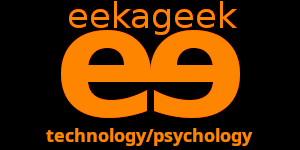Introduction
The exploration of consciousness remains one of the most intriguing and challenging frontiers of scientific research. As we venture into the early years of the 21st century, the study of consciousness has blossomed into a multidisciplinary endeavour, encompassing fields such as neuroscience, psychology, philosophy, and artificial intelligence. In this blog post, I delve into the latest developments in consciousness research, shedding light on our evolving understanding of the enigma of the human mind.
- The Integrated Information Theory (IIT)
Developed by neuroscientist Giulio Tononi, the Integrated Information Theory (IIT) presents a novel framework for understanding consciousness. IIT posits that consciousness emerges from the integration of information within a complex network of interconnected elements. The theory has gained traction among researchers due to its ability to explain both the quality and quantity of conscious experiences. Recent experiments using transcranial magnetic stimulation (TMS) have provided intriguing insights into the relationship between integrated information and conscious awareness, opening new avenues for investigating the neural correlates of consciousness.
- Neural Correlates of Consciousness (NCC)
Identifying the neural correlates of consciousness has been a longstanding goal in neuroscience. Recent studies using advanced brain imaging techniques, such as functional magnetic resonance imaging (fMRI) and electroencephalography (EEG), have made substantial progress in mapping brain activity associated with different conscious states. These studies have led to the discovery of specific brain regions and neural patterns linked to various conscious experiences, including perception, attention, and self-awareness.
- The Role of Microbiota
Emerging evidence suggests that our gut microbiota may play a surprising role in consciousness. The gut-brain axis, a bidirectional communication network between the gut and the brain, has been implicated in influencing mood, behaviour, and even cognitive processes. Researchers have begun to investigate how the trillions of microorganisms residing in our digestive system might interact with the brain and modulate conscious experiences. These findings open up exciting possibilities for new avenues of research and potential therapeutic interventions for mental health disorders.
- Consciousness in Comatose Patients
Understanding consciousness extends beyond the realm of healthy individuals. In recent years, researchers have made significant strides in probing the minds of patients with severe brain injuries or disorders. By utilising advanced neuroimaging techniques, such as functional near-infrared spectroscopy (fNIRS) and positron emission tomography (PET), scientists have gained insights into the potential for residual consciousness in patients diagnosed as comatose or in a vegetative state. These findings challenge our conventional notions of consciousness and raise ethical questions about the treatment and care of patients with disorders of consciousness.
- Consciousness in Artificial Intelligence
As artificial intelligence (AI) continues to advance, the question of machine consciousness has become a subject of intense scrutiny. While AI systems can emulate complex behaviors and perform intricate tasks, they lack subjective experiences that define human consciousness. Researchers are now exploring ways to imbue AI systems with some form of self-awareness, drawing inspiration from theories of consciousness and exploring possibilities for artificial sentience. The intersection of AI and consciousness research has the potential to reshape how we perceive machines and, in turn, redefine our understanding of what it means to be conscious.
Conclusion
The exploration of consciousness research is an exciting journey that transcends disciplinary boundaries. The latest advancements in neuroscience, psychology, and artificial intelligence are driving us closer to unraveling the mysteries of the human mind. From the Integrated Information Theory's elegant framework to unraveling the gut-brain connection and probing the consciousness of comatose patients, each step forward brings us closer to comprehending the most profound aspect of our existence - our consciousness.
As our knowledge expands, so does the depth of the questions we ask. Consciousness research reminds us that, despite the progress made, we have only just scratched the surface of this incredible enigma that is the mind. As we move forward, let us remain open to new possibilities, driven by curiosity and a passion for understanding the very essence of what makes us human.
